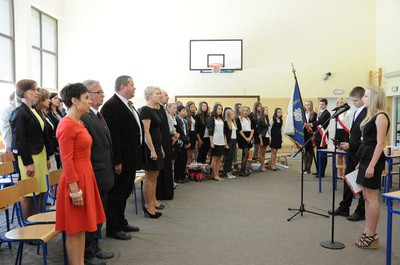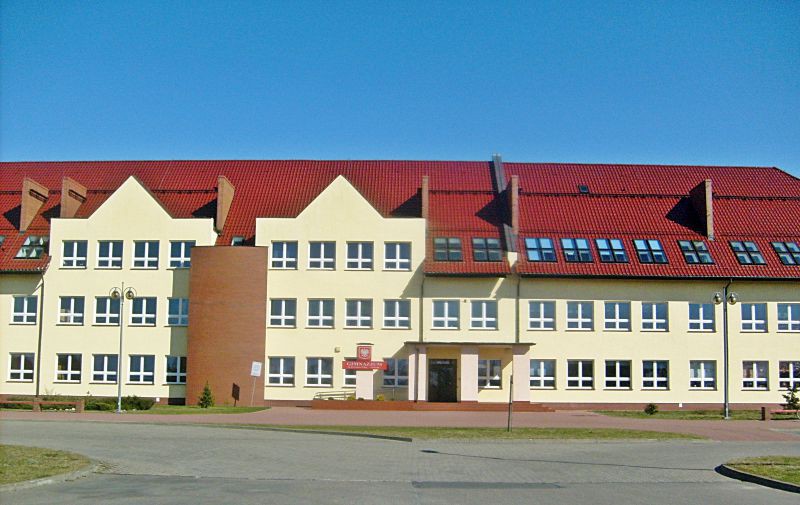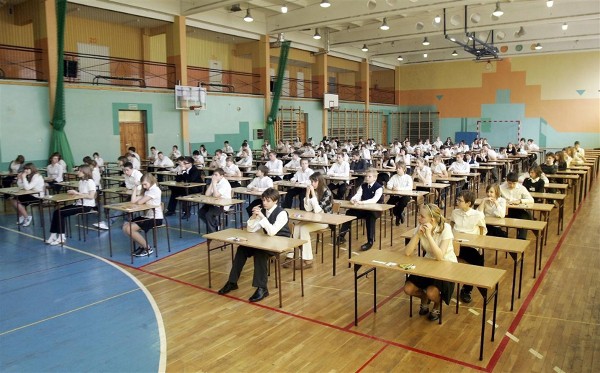Gymnasium – lower secondary school
After finishing primary school, all children are required to continue their education in a three-year lower secondary school - gymnasium. Every child is guaranteed a place in the district school to the catchment area of his place of residence. The child can also apply for a place in a school other than the district school that he would normally attend if there are vacancies. Each school shall establish criteria for admission of candidates from outside the catchment area. The most common factors taken into account include the average of final grades from VI form, sometimes results for year VI and V jointly, test results for the VI form examinations and other achievements (e.g. participation in knowledge contests).
Gymnasiums specializing in foreign languages or sports often organize their own additional language skills or sporting abilities examinations for the candidates. The winners of knowledge contests organized by the relevant provincial school superintendents are guaranteed admission to a selected school on preferential terms, regardless of the criteria set by the school. Therefore, before participation in a contest one should read the rules of the given competition and pay close attention to whether it is organized by the school superintendent.


Gymnasium examination
Education in lower secondary school ends with a nationwide written examination consisting of three parts: the humanities (questions on Polish language, Polish literature, history and social studies), Mathematics and Science (questions on mathematics, physics, chemistry, geography and biology) and language (selected from among the modern languages: English, French, Spanish, German, Russian and Italian, and from school year 2012/2013 also Ukrainian). A given language can be selected only if the student learned it in school as a compulsory subject. The language part can be sat by the student at a basic level or advanced level. The basic level is compulsory for all. The advanced level is mandatory for students opting for a test in a language they learned in elementary school. Other students may also voluntarily take the advanced exam for the language they select.
To take the exam, a written declaration of the choice of language to be tested is to be submitted to the school headmaster. It should be submitted by 20 September of the school year in which the student wants to take the exam. The student's parents sign the declaration on behalf of the child.
Each part of the exam is taken on a different day. The humanities and mathematics and science tests last for 150 minutes, and the language part for 60 minutes at each level.
Taking the exam is necessary to complete gymnasium, but there is no specified minimum of points required to pass it. The result is, however, taken into account during admittance to certain upper secondary schools.
In the school year 2011/2012, during the gymnasium exam foreign students who have been provided with psychological or pedagogical counseling at school related to adaptation difficulties due to previous education abroad (for example, attended additional classes in the Polish language, are entitled, on the basis of an opinion from the school board, to additional support when taking the exam as appropriate to each individual case. Depending on their needs this support may take the form of:
1. Extension of time to work on the tasks:
-for the history and social studies test and the science and modern foreign language test at the basic level - no more than 20 minutes for each;
-for the Polish language and mathematics test -– no more than 45 minutes for each;
-for the modern foreign language test at the advanced level - no more than 40 minutes;
2. to sit the gymnasium exam in a separate classroom;
3. allowing for use of modified criteria as specified in separate regulations for evaluation of open-ended tasks in the Polish language examination, if needed.
Groups entitled to special examination conditions and additional support available to them are identified each year in a communique from the Director of the National Examination Board pursuant to the relevant legal provisions.

Komentarze